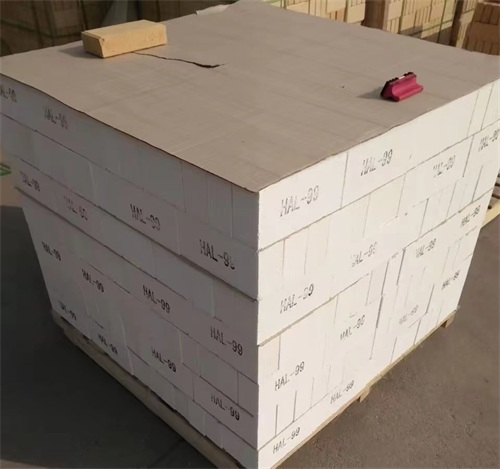Corundum brick is a type of high-grade refractory material made from corundum and other raw materials. It has excellent high-temperature resistance, thermal shock resistance, and chemical stability, making it an ideal choice for a wide range of industrial applications. However, choosing the right corundum brick for your specific industrial needs can be a complex process. In this article, we will explore some of the factors to consider when choosing the right corundum brick for your industrial needs.
What is Corundum Brick?
Corundum brick is a type of refractory material that is made from high-purity corundum and other raw materials, such as alumina, mullite, and silica. Corundum is a naturally occurring mineral that is found in various forms, including ruby and sapphire. It is known for its excellent high-temperature resistance, chemical stability, and mechanical strength, making it an ideal choice for a wide range of industrial applications.
Factors to Consider When Choosing Corundum Brick
1. Temperature
One of the most important factors to consider when choosing corundum brick is the temperature at which it will be used. Corundum brick is known for its excellent high-temperature resistance, but different types of corundum brick have different temperature ratings.
For example, standard corundum brick has a temperature rating of up to 1700°C, while high-purity corundum brick can withstand temperatures up to 1800°C or higher. The temperature rating of the corundum brick you choose will depend on the specific application and the maximum temperature to which the material will be exposed.
2. Chemical Compatibility
Another important factor to consider when choosing corundum brick is the chemical compatibility of the material. Corundum brick is highly resistant to chemical corrosion, but it is important to ensure that the material is compatible with the chemicals used in the industrial process.
For example, in the chemical industry, corundum brick may be used to line reactors or other equipment that comes into contact with corrosive chemicals. In this case, it is important to choose a corundum brick that is compatible with the specific chemicals used in the process.
3. Thermal Shock Resistance
Thermal shock resistance is another important factor to consider when choosing corundum brick. Thermal shock occurs when a material is subjected to sudden and rapid changes in temperature, which can cause the material to crack or break.
Corundum brick is known for its excellent thermal shock resistance, but different types of corundum brick have different levels of resistance. For example, high-purity corundum brick has a higher thermal shock resistance than standard corundum brick.
4. Mechanical Strength
Mechanical strength is another important factor to consider when choosing corundum brick. The mechanical strength of the material will determine its ability to withstand physical stresses, such as pressure, vibration, and impact.
Corundum brick is known for its high mechanical strength, but different types of corundum brick have different levels of strength. For example, high-purity corundum brick has a higher mechanical strength than standard corundum brick.
5. Application
Finally, it is important to consider the specific application when choosing corundum brick. Different types of corundum brick may be better suited to different applications, depending on factors such as temperature, chemical compatibility, and mechanical strength.
For example, in the steel industry, corundum brick may be used to line ladles, tundishes, or other high-temperature equipment. In this case, it is important to choose a corundum brick with a high-temperature rating and excellent thermal shock resistance.

Conclusion
Corundum brick is a high-grade refractory material that is used in a wide range of industrial applications. When choosing the right corundum brick for your industrial needs, it is important to consider factors such as temperature, chemical compatibility, thermal shock resistance, mechanical strength, and application. By carefully considering these factors, you can choose a corundum brick that will provide excellent performance and durability in your specific industrial process.
In addition to the factors discussed above, there are also different types of corundum brick that may be better suited to different applications. For example, high-purity corundum brick is often used in applications that require very high temperature resistance, while tabular corundum brick is often used in applications that require high mechanical strength.
Overall, choosing the right corundum brick for your industrial needs requires careful consideration of a variety of factors. By working with a knowledgeable supplier and taking the time to evaluate your specific needs, you can choose a corundum brick that will provide excellent performance and durability, helping to optimize your industrial process and maximize your bottom line.
Contact: Mgr. Han
Phone: 0086-13589497465
Email: 1255953279@qq.com
Add: Industrial Area of Lingzi Town,Zichuan District,Zibo City, Shandong,China